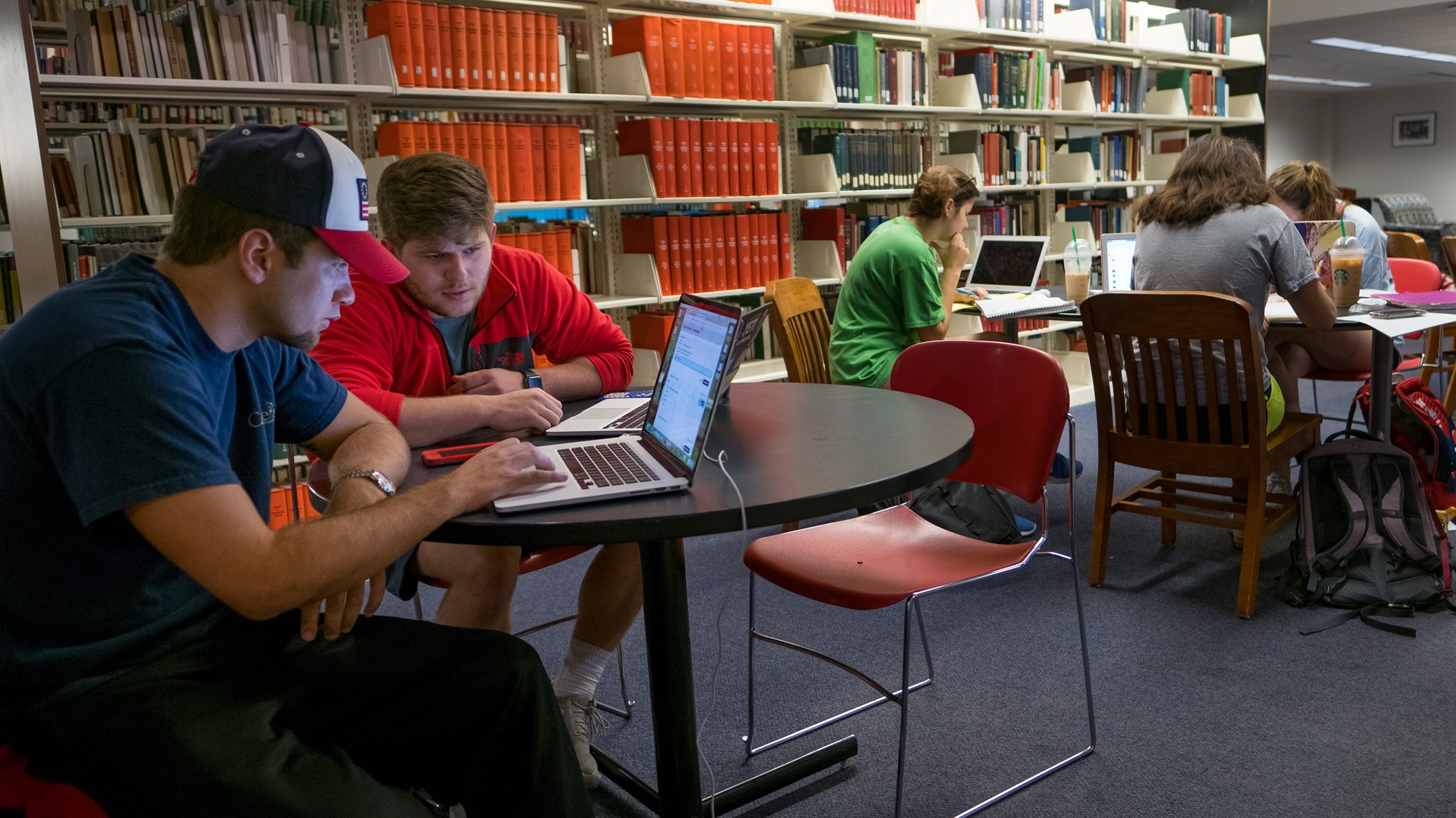
The eGrove digital archive allows users to access all the digital collections housed at the J.D. Williams Library, including the university’s collection of yearbooks, theses, dissertations and other electronic media. Photo by Robert Jordan/Ole Miss Digital Imaging Services
OXFORD, Miss. – The University of Mississippi‘s J.D. Williams Library has launched “eGrove,” an expansive new digital archive that consolidates and houses the university’s collection of yearbooks, theses, dissertations and other digital media in an easily searchable location.
The new platform is the university’s first-ever institutional repository, a central place to find a wide array of scholarly and historic documents, as well as research and other items campus groups wish to publish. It gives the campus community a place to store digital materials in an online location that is easily found using Google and other search engines, said Gail Herrera, assistant dean for technical services and automation and professor of library science.
The possibilities created by the new archive are almost limitless.
“We just want to let people have a place to display their works without having additional costs,” Herrera said. “This is a platform that people can use, if they want to use it. It’s an opportunity for them that can also help raise the university’s online profile.”
The library staff has been working for more than a year to set up eGrove and is ready to begin hosting workshops and training sessions.
More than 43,000 items – documents, photographs and recordings, including existing digital collections that library staff have migrated to the new platform – have been transferred to the new repository since January. The staff has added Ole Miss yearbooks up through 2013; graduate theses and dissertations 2010-19; and Honors College theses through 2019.
The process of naming the archive was an easy one. The metaphor just seems to work, said Michelle Emanuel, head of metadata and digital initiatives.
“The Grove is a place where things begin, and where they end,” Emanuel said. “It’s more than just a place to tailgate; it’s a place to gather. It’s an outdoor classroom.”
The new archive creates a network of important documents, including a file of theses and dissertations presented at the university, unless the author wishes to keep it private, Emanuel said. These documents will become resources researchers across the country can view, and, hopefully, the online presence will create networking opportunities and invitations for collaboration.
More than 25,000 downloads from across the U.S. and 170 countries have been recorded so far.
The platform also can house documents from scholarly conferences and symposiums hosted at the university, which could have value to researchers in years to come. Several conferences have been hosted on eGrove already, including the recent Comicana, which ran Oct. 7-12.
The archive has data sets for researchers to explore, including those collected through federally funded research, which has a requirement that the information be made public. This helps accomplish that goal without costing researchers any additional funding.
The platform allows campus groups to publish their own journals on the digital archive as well. They can set up their own editorial board and review process, and the library publishes the journal at no cost.
The library is publishing the UM Undergraduate Research Journal, which is a new publication, and the Journal of Rural Social Sciences, which previously was hosted at Western Kentucky University.
Readily available classroom materials, such as free open source learning materials, also are available for students and faculty to share on eGrove.
Resources on eGrove are not limited to print. Videos of TED Talks hosted at Ole Miss are also among the items stored in the archive. Documentary film projects from campus, including those made by the university’s centers and/or students, are among the resources in the repository.
The new archive is a blank canvas of information that the university community can design for future generations to enjoy, Emanuel said.
“It’s a place for the university’s intellectual and creative output, but also its history and its archives will be there,” Emanuel said. “It can be really anything. Your website has the most current information, whereas your repository can store all of your legacy content.”
The future looks bright for eGrove, said Cecilia Botero, UM dean of libraries.
“EGrove serves as a central repository to collect, organize and disseminate the University of Mississippi’s scholarly and creative output, plus its history,” Botero said. “We are confident that over time, eGrove will become the go-to means to both access and contribute information relating to the university.